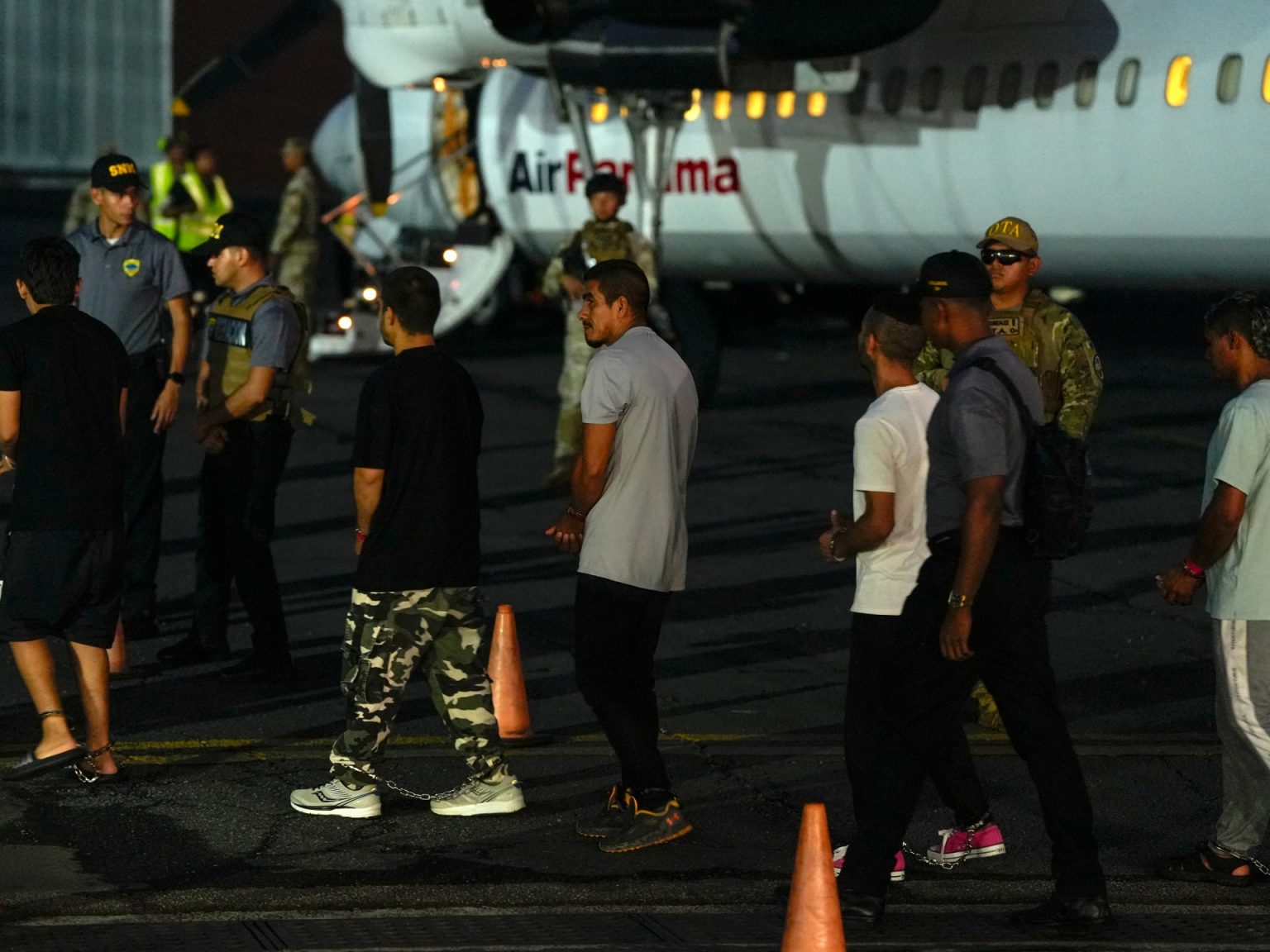Panama has deported 29 Colombians with alleged criminal records under an agreement on migrant repatriations signed with the United States in July. The first flight was financed by the US, with the deportees being lined up and screened before boarding the plane to Bogota. The deportees, who were handcuffed and had no luggage, were slowly escorted onto the plane. While Panama initially stated that the flights would be voluntary, those deported on this occasion had criminal records.
The next flight under the agreement could depart on Friday or Saturday, with increased pressure from Washington on transit countries like Panama to address migration issues. The US has pledged $6 million in funding for migrant repatriations from Panama to help reduce irregular crossings at the southern border. Migrants with a criminal record will be deported in the first phase, with potential for deportation of anyone entering Panama through the dangerous Darien Gap region on their way to the US. This marks the first deportation group under the agreement, following charter flights sent earlier in the year.
The Darien Gap has become a primary route for migrants travelling from South America through Central America and Mexico to the US, despite the risks posed by criminal gangs. Over half a million undocumented migrants, mostly Venezuelans, crossed the Darien last year. Panama is currently unable to deport Venezuelans due to tense relations following a dispute over election results. The country is exploring options with other nations, such as Ecuador and India, to coordinate repatriation flights.
The agreement on migrant repatriations between Panama and the US aims to tackle the challenging migration issue, particularly in an election year for the US. The funding provided by the US will support the deportation of migrants with criminal records and those entering through the treacherous Darien Gap region. Panama’s efforts to address migration challenges are underscored by the recent deportations and coordination with other countries for repatriation flights. The situation highlights the complexities and risks faced by migrants travelling through Central America to the US.
The deportations from Panama to Colombia mark a significant development in the efforts to address migration issues, particularly in the region’s challenging terrain. The deportees, mostly with criminal records, reflect the focus on improving border security and reducing irregular crossings. While the agreement with the US provides support for repatriation efforts, Panama faces constraints in deportation due to diplomatic tensions with certain countries. Despite these challenges, Panama continues to work with other nations to coordinate repatriation flights and address migration concerns through collaborative efforts.
Overall, the deportation of migrant groups from Panama under the agreement with the US represents a significant step in addressing the migration challenges faced by transit countries in the region. As efforts continue to deport individuals with criminal records and enhance border security, collaboration with other nations is crucial in coordinating repatriation flights and managing migration flows. The developments in Panama underscore the complexities and risks associated with irregular migration routes, particularly through hazardous regions like the Darien Gap. The ongoing efforts to address these challenges reflect a broader commitment to managing migration issues and enhancing border security in the region.


